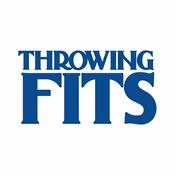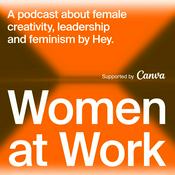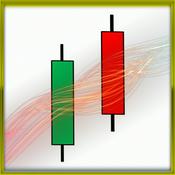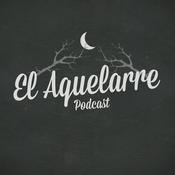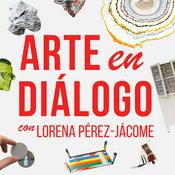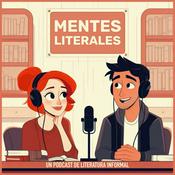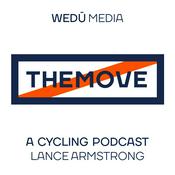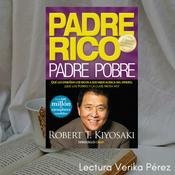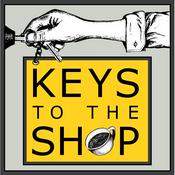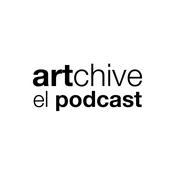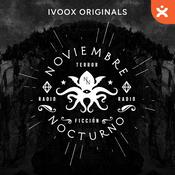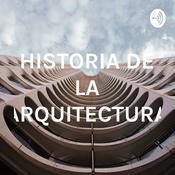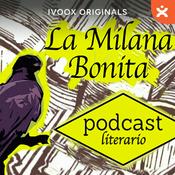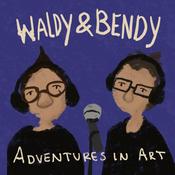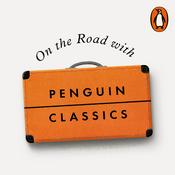54 episodios
- Check out my Free Brainstorming Workshop: https://mightyartisan.com/worldbuilding Learn to silence your inner critic. Ignite creative ideas. And watch a live demo of these techniques in action.
Are you dragging around old projects, outdated goals, and beliefs about success that are actually holding you back? Most artists are trapped by invisible baggage they don't even recognize.
In this episode, we explore "artistic bankruptcy" - the practice of consciously releasing everything that no longer serves your creative journey. From obvious goals you know you should abandon to deep-seated beliefs about what makes a "real artist," we uncover the hidden forces driving your decisions.
We dive deep into the Identity Trap - how your sense of who you are as an artist can either propel you forward or keep you stuck on a treadmill going nowhere. Through real examples and a practical 4-pillar framework, you'll learn to identify the artistic baggage weighing you down.
TIMESTAMPS: 00:00 Intro 04:20 Welcome 05:32 Declaring Artistic Bankruptcy 10:45 What is Artistic Baggage? 27:01 The Identity Trap 42:32 The 4 Pillars Framework 53:14 The Analytical Takeaway 54:32 The Simple Takeaway 54:41 The Practical Takeaway 55:47 The Philosophical Takeaway 1:00:56 Outro
TOOLS FOR TODAY: - Journaling / note-taking app or paper - The 4 Pillars Framework (Obvious Ideas, Non-Obvious Ideas, Projects & Tools, Plans)
BOOKS/RESOURCES MENTIONED:
PEOPLE MENTIONED: - Picasso (discussed in context of style development)
---
The Visual Scholar Podcast is designed to help you demystify the world of Art, Productivity, and Creativity. So you can get better faster, and enjoy your Art Journey.
We discuss Drawing, Painting, Illustration and Entertainment Design. Along with Productivity and Career Advice.
You Can Find The Visual Scholar Podcast In These Places:
Apple: https://podcasts.apple.com/us/podcast/the-visual-scholar/id1678505411
Spotify: open.spotify.com/show/6VbdwbiZqy8nqb90ruKQCX?si=21b9c1d02c85419f
YouTube: https://www.youtube.com/@MightyArtisan
Show Homepage:
https://visualscholar.mightyartisan.com
Where To Find More About Tim Mcburnie:
Learn Drawing and Illustration at The Drawing Codex:
www.thedrawingcodex.com
Take Your Career and Productivity To The Next Level:
www.mightyartisan.com
The Drawing Codex Youtube Channel:
https://www.youtube.com/@TheDrawingCodex
Mighty Artisan Youtube Channel:
https://www.youtube.com/@MightyArtisan
Portfolio: www.timmcburnie.com
www.artstation.com/tim-mcburnie
www.instagram.com/timmcburnie
x.com/timmcburnie - Check out my Free Brainstorming Workshop: https://mightyartisan.com/worldbuilding Learn to silence your inner critic. Ignite creative ideas. And watch a live demo of these techniques in action.
"Artists must smash down the systems that domesticate the mind" - Moebius This is a great quote from the great Jean Giruad (aka Moebius)
What else can we learn from the master?
--- The artist identity trap reveals why professional artists with exceptional craft freeze on personal projects while indie creators with rougher skills confidently produce their own work. This paradox isn't about ability—it's about invisible permission systems created by artistic identity.
Jean Giraud's transformation into Moebius demonstrates this profoundly. By becoming Moebius, he created psychological space to revolutionize visual storytelling, influencing Hollywood and Japanese manga for decades.
Different artistic communities construct incompatible value hierarchies. Comic artists derive status from unique style. Concept artists suppress personal style for versatility and credits. Indie creators measure worth through pure expression. Moving between these paradigms feels like betraying core aspects of yourself.
The freelance mindset that enables shaping others' visions conflicts with personal creation. Professional training rewires how you evaluate your own ideas, creating paralysis where skill exists but internal authorization does not.
Moebius wasn't just branding—it was psychological liberation. Authors adopt pen names when switching genres. Actors use stage names separating personal from public persona. The early internet's universal alias culture created remarkable creative freedom. As professional identity became necessary for freelance careers, creative freedom potentially suffered.
---
00:00 - Intro
01:09 - Welcome to Visual Scholar
01:31 - The Journey Of Jean Giraud
05:42 - The Identity Trap
13:02 - Status Games
25:39 - Becoming Who You NEED To Be
39:59 - Analytical Takeaway
42:06 - Simple Takeaway
42:23 - Practical Takeaway
48:14 - Philosophical Takeaway
51:43 - Outro
TOOLS FOR TODAY: - Identity mapping exercise - Permission system analysis - Alias brainstorming techniques
BOOKS/RESOURCES MENTIONED: - Works of Moebius/Jean Giraud - Blueberry comic series - Early internet creative communities
PEOPLE MENTIONED: - Jean Giraud/Moebius - Various unnamed indie and professional artists
---
The Visual Scholar Podcast is designed to help you demystify the world of Art, Productivity, and Creativity. So you can get better faster, and enjoy your Art Journey.
We discuss Drawing, Painting, Illustration and Entertainment Design. Along with Productivity and Career Advice.
You Can Find The Visual Scholar Podcast In These Places:
Apple: https://podcasts.apple.com/us/podcast/the-visual-scholar/id1678505411
Spotify: open.spotify.com/show/6VbdwbiZqy8nqb90ruKQCX?si=21b9c1d02c85419f
YouTube: https://www.youtube.com/@MightyArtisan
Show Homepage:
https://visualscholar.mightyartisan.com
Where To Find More About Tim Mcburnie:
Learn Drawing and Illustration at The Drawing Codex:
www.thedrawingcodex.com
Take Your Career and Productivity To The Next Level:
www.mightyartisan.com
The Drawing Codex Youtube Channel:
https://www.youtube.com/@TheDrawingCodex
Mighty Artisan Youtube Channel:
https://www.youtube.com/@MightyArtisan
Portfolio: www.timmcburnie.com
www.artstation.com/tim-mcburnie
www.instagram.com/timmcburnie
x.com/timmcburnie - Check out my Free Brainstorming Workshop: https://mightyartisan.com/worldbuilding Learn to silence your inner critic. Ignite creative ideas. And watch a live demo of these techniques in action.
Artists have this love-hate relationship with deadlines - they stress us out and make us compromise our work, but they also force us to finish things and can actually unlock creative flow.
Professional artist deadline anxiety emerges from job descriptions mentioning tight deadlines and high-pressure environments. Most artists worry whether they need to compete purely on speed, creating fear that everyone expects perfection immediately or they won't get employed. This relationship with deadlines becomes particularly challenging in concept art and commercial illustration where strict deadlines are common.
This episode explores three key aspects of professional deadlines: why reliability and speed matter as much as quality in professional art careers, the reality of professional environments including crunch culture context and what employers actually expect from new artists, and practical strategies for building speed and meeting industry-specific deadline requirements systematically.
The discussion covers how speed functions as a learnable skill rather than inherent talent, why the intersection of quality and speed creates competitive advantages, and frameworks for researching and practicing industry-specific time expectations. Key elements include understanding the speed-quality-cost relationship, building deadline confidence through systematic practice, and recognizing deadlines as completion enablers rather than creativity destroyers.
CHAPTERS:
00:00 Intro
01:44 Welcome
03:00 The Professional Artist Anxiety
08:38 Why Deadlines Matter in Professional Art
23:02 The Reality of Professional Environments
44:28 How to Build Speed and Meet Professional Deadlines
01:03:24 The Analytical Takeaway
01:07:16 The Simple Takeaway
01:07:44 The Practical Takeaway
01:15:11 The Philosophical Takeaway
01:20:31 Outro
The Visual Scholar Podcast is designed to help you demystify the world of Art, Productivity, and Creativity. So you can get better faster, and enjoy your Art Journey.
We discuss Drawing, Painting, Illustration and Entertainment Design. Along with Productivity and Career Advice.
You Can Find The Visual Scholar Podcast In These Places:
Apple: https://podcasts.apple.com/us/podcast/the-visual-scholar/id1678505411
Spotify: open.spotify.com/show/6VbdwbiZqy8nqb90ruKQCX?si=21b9c1d02c85419f
YouTube: https://www.youtube.com/@Tim-Mcburnie
Show Homepage:
www.thedrawingcodex.com/podcasts/the-visual-scholar
Where To Find More About Tim Mcburnie:
Learn Drawing and Illustration at The Drawing Codex:
www.thedrawingcodex.com
Art Community:
www.mightyartisan.com
The Drawing Codex Youtube Channel:
https://www.youtube.com/@TheDrawingCodex
Portfolio: www.timmcburnie.com
www.artstation.com/tim-mcburnie
www.instagram.com/timmcburnie
x.com/timmcburnie - Check out my Free Brainstorming Workshop: https://mightyartisan.com/worldbuilding Learn to silence your inner critic. Ignite creative ideas. And watch a live demo of these techniques in action.
---
This is The Fifty First Episode of the Visual Scholar Podcast - With Tim Mcburnie.
What if style isn't something you choose, but something that emerges from three specific elements working in the right sequence?
Below is in Automagically generated summary so you can check out the content and also to help with search functionality!
---
This episode breaks down the three fundamental elements that determine every artist's style and explores why most artists approach style development in the wrong sequence. Rather than treating style as something you pick from a menu, the discussion examines how style emerges from the intersection of aesthetic DNA, process choices, and functional constraints. The episode explores how visual aesthetics come from early influences and mental landscapes that artists uncover rather than choose, drawing examples from childhood inspirations and the concept of investigating the influences of your influences. It examines how process - from tools and techniques to thinking patterns - directly shapes the surface appearance of work, using examples from comic book penciling techniques to concept art workflows. The final element addresses how functionality and production constraints actually drive many stylistic choices, from publishing schedules affecting comic book aesthetics to career requirements shaping artistic approaches.
—
CHAPTERS:
00:00 Intro
01:10 Welcome
02:26 Artists Think Style Is a Choice…
07:05 Aesthetic - Your Visual DNA
18:57 Process - How You Actually Make Art
26:35 Functionality - Purpose Drives Style
41:20 The Analytical Takeaway
43:59 The Simple Takeaway
44:12 The Practical Takeaway
48:16 The Philosophical Takeaway
53:15 Outro
—
---
The Visual Scholar Podcast is designed to help you demystify the world of Art, Productivity, and Creativity. So you can get better faster, and enjoy your Art Journey.
We discuss Drawing, Painting, Illustration and Entertainment Design. Along with Productivity and Career Advice.
You Can Find The Visual Scholar Podcast In These Places:
Apple: https://podcasts.apple.com/us/podcast/the-visual-scholar/id1678505411
Spotify: open.spotify.com/show/6VbdwbiZqy8nqb90ruKQCX?si=21b9c1d02c85419f
YouTube: https://www.youtube.com/@MightyArtisan
Show Homepage:
https://visualscholar.mightyartisan.com
Where To Find More About Tim Mcburnie:
Learn Drawing and Illustration at The Drawing Codex:
www.thedrawingcodex.com
Take Your Career and Productivity To The Next Level:
www.mightyartisan.com
The Drawing Codex Youtube Channel:
https://www.youtube.com/@TheDrawingCodex
Mighty Artisan Youtube Channel:
https://www.youtube.com/@MightyArtisan
Portfolio: www.timmcburnie.com
www.artstation.com/tim-mcburnie
www.instagram.com/timmcburnie
x.com/timmcburnie - Check out my Free Brainstorming Workshop: https://mightyartisan.com/worldbuilding Learn to silence your inner critic. Ignite creative ideas. And watch a live demo of these techniques in action.
---
This is The Fiftieth Episode of the Visual Scholar Podcast - With Tim Mcburnie.
Most artists think intent is fine art pretension, but it's actually the secret that transforms technically skilled work into art that connects.
Below is in Automagically generated summary so you can check out the content and also to help with search functionality!
---
Let’s explore why artistic intent - often dismissed as "fine art nonsense" by commercial and entertainment artists - is actually the missing element that transforms technical skill into impactful work. The episode examines how the divide between fine art and commercial art education leaves technically proficient artists stuck in the "execution trap," where they can render beautifully but struggle to create work with purpose and direction.
The discussion covers the practical reality that most entertainment artists are trained to execute someone else's vision, never learning to be the author of their own work. Tim breaks down how intent functions as both creative direction and decision-making filter, turning random technical ability into purposeful communication. The episode provides concrete methods for setting and using intent in daily art practice, from individual drawing sessions to larger personal projects.
Rather than academic theory, this episode focuses on intent as a practical tool for working artists who want their technically solid work to create genuine connection with viewers. Tim argues that intent is what separates craft from art, and explores why many skilled artists unconsciously avoid developing this crucial element of their creative practice.
— Chapters
CHAPTERS:
00:00:00 Intro
00:01:05 Welcome
00:02:22 When Technical Skill Isn't Enough
00:09:07 The Intent Divide: Why We Avoid What We Need Most
00:24:57 Intent Creates Direction: From Technician to Author
00:42:54 Practical Intent: How to Actually Use This
00:52:02 The Analytical Takeaway
00:54:44 The Simple Takeaway
00:55:03 The Practical Takeaway
00:58:15 The Philosophical Takeaway
01:07:51 Out
—
---
The Visual Scholar Podcast is designed to help you demystify the world of Art, Productivity, and Creativity. So you can get better faster, and enjoy your Art Journey.
We discuss Drawing, Painting, Illustration and Entertainment Design. Along with Productivity and Career Advice.
You Can Find The Visual Scholar Podcast In These Places:
Apple: https://podcasts.apple.com/us/podcast/the-visual-scholar/id1678505411
Spotify: open.spotify.com/show/6VbdwbiZqy8nqb90ruKQCX?si=21b9c1d02c85419f
YouTube: https://www.youtube.com/@MightyArtisan
Show Homepage:
https://visualscholar.mightyartisan.com
Where To Find More About Tim Mcburnie:
Learn Drawing and Illustration at The Drawing Codex:
www.thedrawingcodex.com
Take Your Career and Productivity To The Next Level:
www.mightyartisan.com
The Drawing Codex Youtube Channel:
https://www.youtube.com/@TheDrawingCodex
Mighty Artisan Youtube Channel:
https://www.youtube.com/@MightyArtisan
Portfolio: www.timmcburnie.com
www.artstation.com/tim-mcburnie
www.instagram.com/timmcburnie
x.com/timmcburnie
Más podcasts de Arte
Podcasts a la moda de Arte
Acerca de The Visual Scholar
Demystifying the world of Art and Productivity, so you can get better faster and enjoy your Artistic Journey.
Sitio web del podcastEscucha The Visual Scholar, Audiolibro En Español y muchos más podcasts de todo el mundo con la aplicación de radio.net
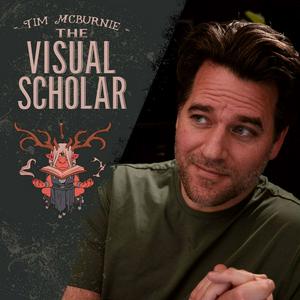
Descarga la app gratuita: radio.net
- Añadir radios y podcasts a favoritos
- Transmisión por Wi-Fi y Bluetooth
- Carplay & Android Auto compatible
- Muchas otras funciones de la app
Descarga la app gratuita: radio.net
- Añadir radios y podcasts a favoritos
- Transmisión por Wi-Fi y Bluetooth
- Carplay & Android Auto compatible
- Muchas otras funciones de la app


The Visual Scholar
Escanea el código,
Descarga la app,
Escucha.
Descarga la app,
Escucha.






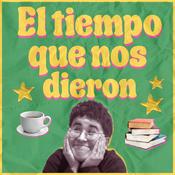

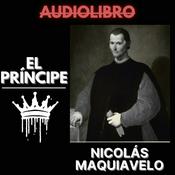
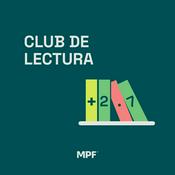

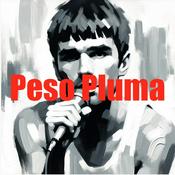

![Podcast Cómo ganar amigos e influir sobre las personas [Spotify Edition]](https://mx.radio.net/podcast-images/175/como-ganar-amigos-e-influir-sobre-las-personas-spotify.jpeg?version=bc43cd7b76f606594080059877e3f74e0d72a279)
